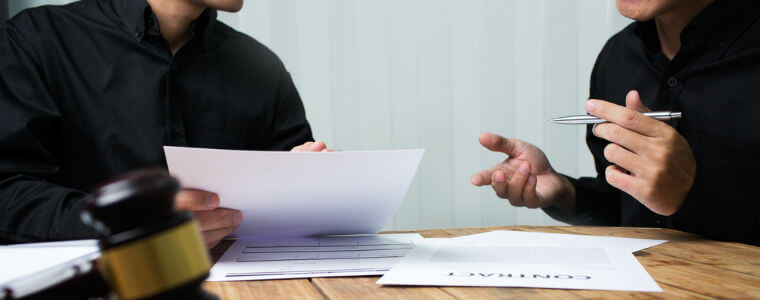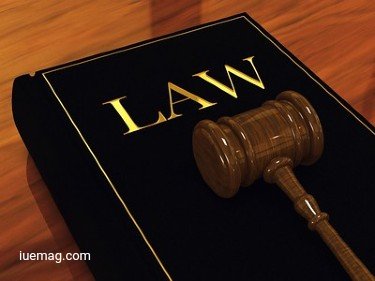When you have been charged with a crime, one of the first questions you might ask is what types of defenses are available to you. This is where you will need them to know the legal defenses in criminal law, and where defense lawyer strategies that have been perfected with time and experience can help you.
There are many different types of criminal defenses. Your attorney can help you explore your rights and options, including which defense or defenses are available and applicable in your case.
What Is a Criminal Defense?
So just what is criminal defense? Criminal defense is a strategic argument that attempts to challenge the validity and sufficiency of the prosecution’s evidence. The prosecution often referred to as the state, the people, or the United States for federal crimes, is the party trying to prove the criminal charges against you. The prosecution must prove the crime beyond a reasonable doubt.
This breaks down as they must prove every element of the crime you have been charged with beyond a reasonable doubt. This is called the “burden of proof,” and it is a heavy one.
14 Common Defenses to Criminal Charges
There are many common defenses to criminal charges. A defendant may argue that there are holes in the prosecution’s case, that evidence was gathered in violation of the defendant’s constitutional rights, that another individual committed the crime, that the defendant had a justifiable reason for committing the crime, that the defendant lacked the intent to commit the crime, or that that defendant had a mental incapacity which caused him or her to commit the crime.

While some defenses are merely raised with the aim of showing that the prosecution has failed to make its case, other defenses are affirmative defenses, meaning they must be independently proven. So, what are the major criminal law defenses? We have provided a helpful list of the major criminal defenses below.
1. Innocence
One of the simplest defenses to criminal liability is the defense of innocence. This defense is raised when you did not commit the crime. Remember, the prosecution has to prove every element of the crime charged against you and prove it beyond a reasonable doubt.
To be innocent you do not have to prove anything. However, you have the option of offering testimony, documents, and other evidence in support of your innocence.
2. Constitutional Violations
These are types of criminal defenses used in criminal trials and involve the way evidence was collected by police and other law enforcement. Don’t miss these important defenses, because they could result in the dismissal of the entire case.
Constitutional violations include illegal search and seizure of your home, car, clothing or person, failure to obtain a warrant for entry, obtaining an improper confession, or failure to read you your “Miranda Rights” at the time of the arrest. Police often make mistakes in the way they do their job. These mistakes may require suppression of evidence against you, if not a dismissal of the prosecution’s entire case.
3. Alibi
Certain types of defenses in criminal law, such as the alibi defense, are affirmative defenses. This means the defendant (you) must prove the defense, and in the case of an alibi, it means that the defendant must prove that he or she was somewhere other than the scene of the crime at the time of the crime.
Supportive evidence a defendant might offer includes testimony from someone he or she was with, surveillance footage, receipts from a restaurant, store, movie theater or sporting event, or phone records.
4. Insanity
The insanity defense, which you may hear about all the time in tv courtroom dramas, is used infrequently for a few reasons. The first is the insanity defense is another affirmative defense, which requires that the defendant prove, beyond a reasonable doubt, that he or she was suffering a severe mental disease or defect at the time the crime was committed.
The insanity defense means that either the defendant was unable to distinguish right from wrong when the crime was committed (the M’Naghten Rule), or the defendant had an “irresistible impulse” to commit a crime, meaning that he or she knew what they were doing was wrong but was unable to stop doing it.
The second reason insanity is rarely raised is that the defense requires the defendant to admit that the crime was committed and that they committed it. If the jury does not agree that the defendant was insane, they have admitted too many of the facts against them, and probably given the prosecution a very easy win. A third reason insanity defenses are used less than you might think is that a successful insanity defense generally results in institutionalization.
5. Self-Defense
The defense of self-defense may be raised for crimes like assault, battery, and murder, where the defendant used violence in a justified way to respond to violent actions or the threat of violent actions coming from the victim. The amount of force used by the defendant must be reasonable and proportionate (generally, the same or less) to the amount of force used by the victim.
For example, a defendant’s self-defense against a middle-aged man attacking him with a broken bottle in a bar fight will be treated very differently than his self-defense against toddlers climbing on him in a daycare setting.
6. Defense-of-Others
Like self-defense, another defense involving justified use of force or violence is the defense-of-others defense. This may be used where the defendant used violence to protect someone else – a spouse, a child, another family member, or even a stranger. A person could invoke this defense if they used violence to stop someone who physically attacked another rider on a bus.
7. Defense-of-Property
Similar to self-defense and the defense-of-others, the defense-of-property defense may be raised where the defendant used force or violence to protect property, such as land or items, from damage or destruction. This defense has an additional limitation, in that the amount of force used to protect property can never be lethal.
8. Involuntary Intoxication
Involuntary intoxication is a lack of intent defense. If the defendant was in a state where he or she did not know what they were doing due to intoxication, this defense cancels out the intent aspect of most crimes.
Can being too drunk or too high really serve as a defense to committing a crime? The answer is maybe. If the person who was intoxicated did not become voluntarily intoxicated, such as if their drink was “spiked” or they ate something at a party did they did not realize was “laced” or drugged with a narcotic.
9. Voluntary Intoxication
Unlike involuntary intoxication, getting drunk or high deliberately and then committing a crime will not stand as a valid defense. However, certain crimes that have a specific intent requirement – meaning, the prosecution must prove beyond a reasonable doubt that the defendant intended to commit the act, and additionally, intended the specific consequences of his or her act to occur – may be subject to the voluntary intoxication defense.

10. Mistake of Law / Mistake of Fact
Sometimes, a defendant may have been unaware of a fundamental element of a crime that the prosecution has charged him with. For example, if a defendant is charged with stealing a car, but believed his family member or friend wanted to give him the car, a mistake defense would exist.
This defense is also a useful embezzlement defense or fraud defense. For example, with an embezzlement charge, if the defendant was in a position of authority or responsibility over someone else’s property, kept or used the property without the permission of its rightful owner, used the property to his or her benefit, and had the intent to permanently deprive the owner of the property, this would ordinarily constitute embezzlement. However, if the defendant thought he or she was given the authority to use the property by the person, such as believing he or she was supposed to make an investment with the victim’s money, they would have a valid mistake defense.
11. Duress or Coercion
This defense involves someone else threatening to use force or violence to get you to do something against your better judgment. Essentially, it means you were forced to commit a crime. Many Hollywood movies about organized crime families – The Godfather, Goodfellas, The Departed – all focus on the mafia using coercion to entangle people in their criminal activities, by threatening to harm them or their families. These types of situations provide potential duress or coercion defense.
12. Abandonment / Withdrawal
This defense can be raised when a defendant initially intended to commit a crime or participate in a crime but had a change of heart and withdrew from participation. For most crimes, a defendant can establish that he or she successfully abandoned or withdrew from a crime by showing that he or she stopped participating in the crime prior to its ultimate commission, that any actions undertaken by the defendant prior to abandoning the crime did not contribute to its successful completion, or that the defendant notified the police of the planned crime as soon as possible.
13. Necessity
This is a defense that applies where the defendant committed a crime to prevent more significant harm from happening. For example, the defendant stole a car to drive a gunshot victim to the hospital or stole food to feed his starving family. The defense would not apply if the same defendant stole the car to take a vacation or stole laptops from an electronics store during a riot.
14. Statute of Limitations
This is a procedural defense. Sometimes, a certain crime will have a specific window of time in which it can be brought by the prosecution. If the window closes, the statute of limitations may bar the prosecution from bringing the case.
This is an overview of the defenses which may be available in your criminal case. For an analysis of the particular facts and circumstances of your case and to choose the best defense or defenses available, an experienced Houston federal criminal attorney can help. Contact Seth Kretzer today to schedule a consultation.
... Read More 

 The number of lawyers in the US could
The number of lawyers in the US could  Check your state or city’s criminal defense lawyer organization as well.
Check your state or city’s criminal defense lawyer organization as well. 5. Schedule a Consultation
5. Schedule a Consultation Most people don’t keep the name of a
Most people don’t keep the name of a







